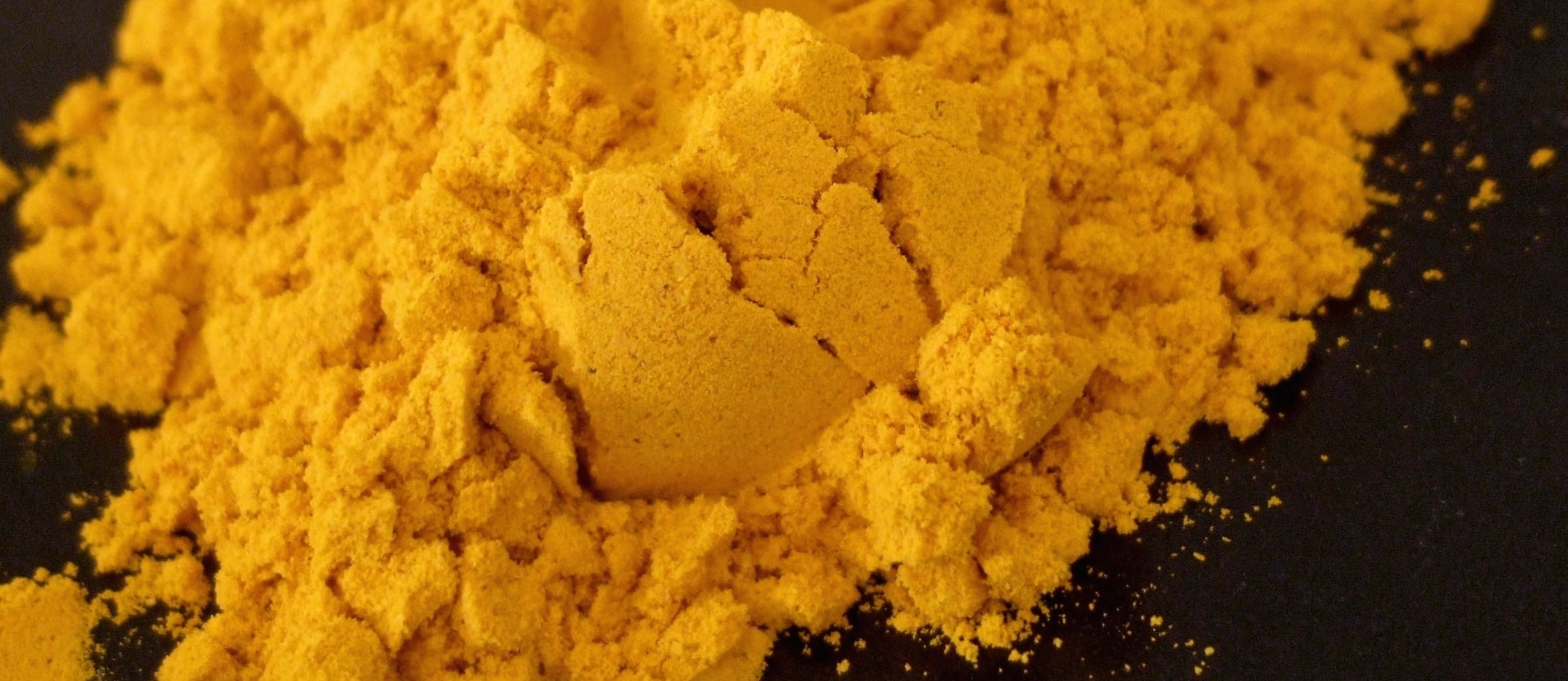The low incidence of bowel cancer in India is often attributed to natural antioxidants such as curcumin, the yellow pigment in the spice turmeric, used in curry powder. However, it is important to remember that the benefits of a diet are seldom produced by a single ingredient in that diet. For example, diets rich in beta-carotene lower the risk of tobacco-related cancers, but beta-carotene pills do not. That doesn’t stop researchers from trying, though.
Back in 2001, in a last ditch attempt to save the lives of 15 patients with advanced colorectal cancer that didn’t respond to any of the standard chemotherapy agents or radiation, researchers started them on a turmeric extract. The extract appeared to help stall the disease in a third (5 out of 15) of the patients, suggesting that turmeric extract may clinically benefit at least some patients with advanced refractory colorectal cancer.
If we were talking about some new kind of chemotherapy, and it only helped one in three, we’d have to weigh the benefits against chemo side effects, such as losing our hair, the sloughing of our guts, intractable vomiting, maybe being bed-ridden. Therefore, a drug scenario, a one in three benefit may not sound particularly appealing. But when we’re talking about plant extract proven to be remarkably safe, it would be worth considering even if it just helped 1 in a 100. With no serious downsides, a one in three benefit for end-stage cancer is pretty exciting.
To see if colon cancer could be prevented, five years later, researchers at Cleveland Clinic and John Hopkins School of Medicine tested two phytochemicals, curcumin (from turmeric) and quercitin, (found in fruits and vegetables such as red onions and grapes) in people with familial adenomatous polyposis, an inherited form of colon cancer in which individuals develop hundreds of polyps that may become cancerous unless prophylactically removed. (See Turmeric Curcumin and Colon Cancer). Researchers gave supplements of curcumin and quercetin to five such patients who already had their colons removed, but still had either polyps in their rectum or in a little intestinal pouch. Each patient had between 5 and 45 polyps each, but after six months on the supplement they ended up with on average fewer than half the polyps, and the ones that were left had shrunk in half. One patient got rid of all polyps by month three, but then they seemed to come back. The researchers asked the patient what’s what, and it turned out that the patient stopped taking the supplements. So researchers put the patient back on the phytonutrient supplements for another three months, and the polyps came back down with virtually no adverse events and no blood test abnormalities.
By studying people at high risk for colon cancer, the researchers were able to show noticeable effects within just months. But polyposis is a rare disease; they were only able to recruit five people for the study. Thankfully, smokers are a dime a dozen. After another five years, researchers put 44 smokers on turmeric curcumin supplements alone for a month and measured changes in their colorectal aberrant crypt foci, which may act like the precursors to polyps, which are the precursors to cancer. After just one month there was a significant drop in the number of these abnormal crypt foci in the high dose supplement group but no change in the low dose group. There were also no dose-limiting side effects (although the stools in the participants did turn yellow).
The low cancer rates in India may also be related to phytate consumption (Phytates for the Prevention of Cancer) and plant-centered diets (Back to Our Roots: Curry and Cancer).
More on turmeric and Cancer in Carcinogenic Blocking Effects of Turmeric and Turmeric Curcumin Reprogramming Cancer Cell Death.
Given the poor systemic absorption of turmeric compounds, what cancers other than that of the digestive tract may be directly affected? See my follow-up video Topical Application of Turmeric Curcumin for Cancer.
In health,
Michael Greger, M.D.
PS: If you haven’t yet, you can subscribe to my free videos here and watch my live year-in-review presentations Uprooting the Leading Causes of Death, More Than an Apple a Day, From Table to Able, and Food as Medicine.
